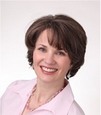During these times of economic volatility, it's a good idea to be prepared in case your employment situation changes. Whether you're currently employed and looking for a new opportunity or unemployed and searching for work, you'll want to get the most out of your job-hunting time and effort. To overcome feeling overwhelmed, I recommend creating a plan and getting organized - this will help you focus your efforts, stay motivated, and accelerate your success. Check out my "7 Simple Steps" article below for helpful tips.
1. Think about your ideal job. Take time to identify your skills and interests and write down attributes of your ideal job. (You may ask a career counselor to help with this step.) Also, think about the type of business you'd like to work for, including aspects such as company size and location. Be sure to consider any transportation and time restrictions you may have.
2. Set goals. Next, clearly define your job search goals. For example, how much time will you devote each week to job hunting? What specific steps must you accomplish to make your ideal job a reality? Write down specific tasks you need to accomplish each week. For example: "Research and review 30 company websites, make 20 phone calls, attend 1 networking event, update my resume, practice my interviewing skills, and review classified ads."
3. Create an action plan. Now it's time to schedule your tasks. If you work full-time, you'll need to squeeze a few tasks into a full day. Having a written plan of action - such as a specific list of people to call during your lunch hour - will ensure you make the most of your limited time. If you're not working, don't fall into the "I've got all day" trap! Create appointments with yourself to accomplish tasks that will lead to achieving your job-finding goals. To minimize distractions, consider conducting research at the library.
4. Invest your time wisely. Be sure to allocate your time to each job-hunting activity according to how potentially effective it will be. For example, for your field, spending time networking may be much more effective than responding to classified ads. Also, schedule and tackle difficult or unpleasant activities during the time of day when you have the most mental energy.
5. Organize your paperwork. No doubt you'll accumulate paper documents during your job search. Don't let your files become piles! Use a file box or binder to corral important paperwork. Create separate sections (with clear labels) for your resume, references, company profiles, business cards, etc. Every time you submit a resume to a company, create a section for that company with all relevant information (including a copy of the resume you submitted), so details are easy to find when you receive a call from a prospective employer.
6. Follow up. Create a system to review open leads and follow up on interviews. Make a note on your paper calendar or electronic scheduling tool, or use a contact management software program. Remember to write thank-you notes immediately after an interview as well as to anyone who helps with your job search.
7. Take care of yourself. Job hunting can be physically and emotionally draining, so it's important that you take care of yourself by eating well and exercising. When you're feeling low, pamper yourself with an enjoyable activity.
Ready to get started? Choose and schedule one task that will move you closer to finding your ideal job. Remember, the time you invest now can lead to a future filled with a rewarding, fulfilling job.
Internationally known professional organizer, author, and speaker Sue Becker is the founder and owner of From Piles to Smiles®. She enjoys helping people from around the world live better lives by creating customized systems to overcome their overwhelming paperwork, clutter, and schedules. She specializes in helping people who are chronically disorganized - those for whom disorganization has been a lifelong struggle that negatively impacts every aspect of their life, especially people with AD/HD. Her hands-on help, as well as her presentations, have helped thousands of individuals create substantial change in their lives.
Sue is Illinois’ first Certified Professional Organizer in Chronic Disorganization. She co-authored the book Conversations on Success, and has appeared as an organizational expert on NBC News and the national TV show, Starting Over. A CPA, Sue has an MBA from Northwestern University’s Kellogg Graduate School of Management.

Post new comment
Please Register or Login to post new comment.